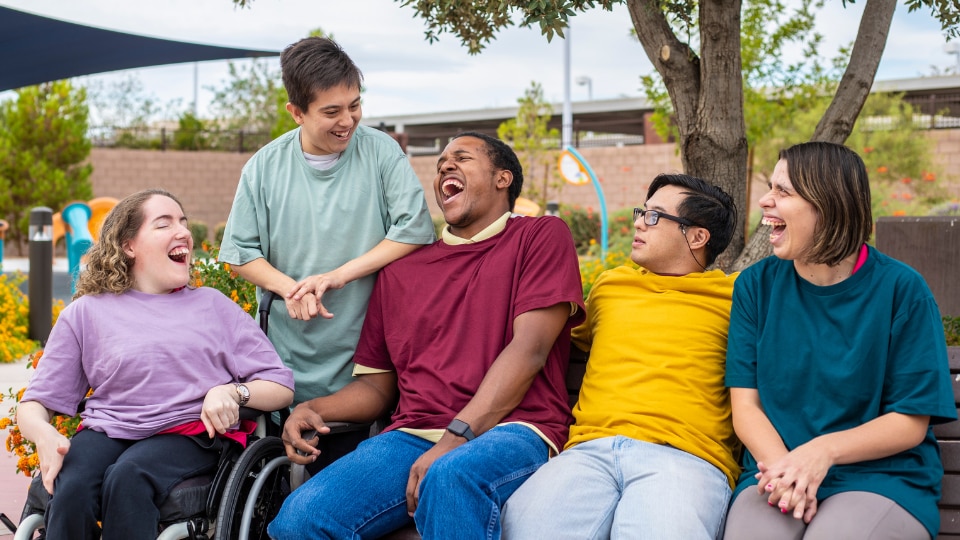Key points
- Having a child with a birth defect can affect the entire family.
- For families navigating this journey, connecting with others who share similar experiences can be a helpful source of support and advice.
- Along with your child's provider, other families and support organizations may be able to share resources and tips.

Finding support
There are many ways to connect with other families, including in person, on the Internet, or by telephone. Remember that the choices of one family might not be best for another family. It's always important to understand all options and discuss any medical decisions with your child's healthcare providers.
The following sources can help you get started and find support groups:
Healthcare providers
Your child's healthcare providers can be reliable sources for contact information about support groups. This could be a primary care physician, genetic counselor, neurologist, orthopedist, or a physical or occupational therapist. Hospitals in your area might also sponsor support groups.
National and community organizations
Organizations that focus on specific birth defects can be national or even international such as the Global Gastroschisis Foundation. Organizations may have state or local branches, such as Spina Bifida Association of Georgia. State or local area March of Dimes offices could also be helpful. United Way offices may be able to point out resources. You can search on the Internet for phone numbers and addresses.
Support and advocacy organizations
The views of these organizations are their own and do not reflect the official position of CDC.
The following organizations have information about support groups:
The Arc website provides information to help children and families with Down syndrome, Fetal Alcohol Spectrum Disorder, and many other disabilities. The Arc is an advocate for individuals with intellectual and developmental disabilities, providing support and services.
The Brave Kids website has an online resource for children with special needs and their families. There are message boards, resources, and games.
The Compassionate Friends website offers help to families dealing with grief following the death of a child of any age.
Family Voices is a family-led organization of families and friends of children and youth with special healthcare needs and disabilities. They connect a network of organizations across the United States that provide support to families.
March of Dimes (MOD)
MOD works to assure that babies are born healthy. Through research, outreach, education, and advocacy, MOD addresses issues such as prematurity, low birth weight, and birth defects.
National organizations and resources
The views of these organizations are their own and do not reflect the official position of CDC.
American Academy of Pediatrics (AAP)
AAP is a professional organization for pediatricians committed to the health of infants, children, and adolescents. The website contains general information about children's health and more specific information about guidelines and publications. AAP also hosts a website specifically for parents called HealthyChildren.org.
American College of Obstetrics and Gynecology (ACOG)
ACOG is a professional organization for physicians committed to providing health care for women. Their website provides general information about women's health issues during pregnancy including educational pamphlets about birth defects.
Office of Assistant Secretary for Health/Office on Women’s Health
A website and toll-free call center that provide free, reliable health information for women. The site contains a database of resources with topic areas such as pregnancy and medications.
Medline Plus provides information on pregnancy and many different types of birth defects. It includes information on prevention and screening, research, organizations, and more.
MotherToBaby provides evidence-based information to healthcare professionals and the general public about medications and other exposures during pregnancy and while breastfeeding. Talk directly to the experts about up-to-date research.
CDC resources
Find basic information about birth defects, including causes, diagnosis, and living with these conditions.
The Healthcare Provider's Role
Find information about what to expect from your child's healthcare provider.
Learn about genetics and how a genetic counselor can help families that have a child with a birth defect.
